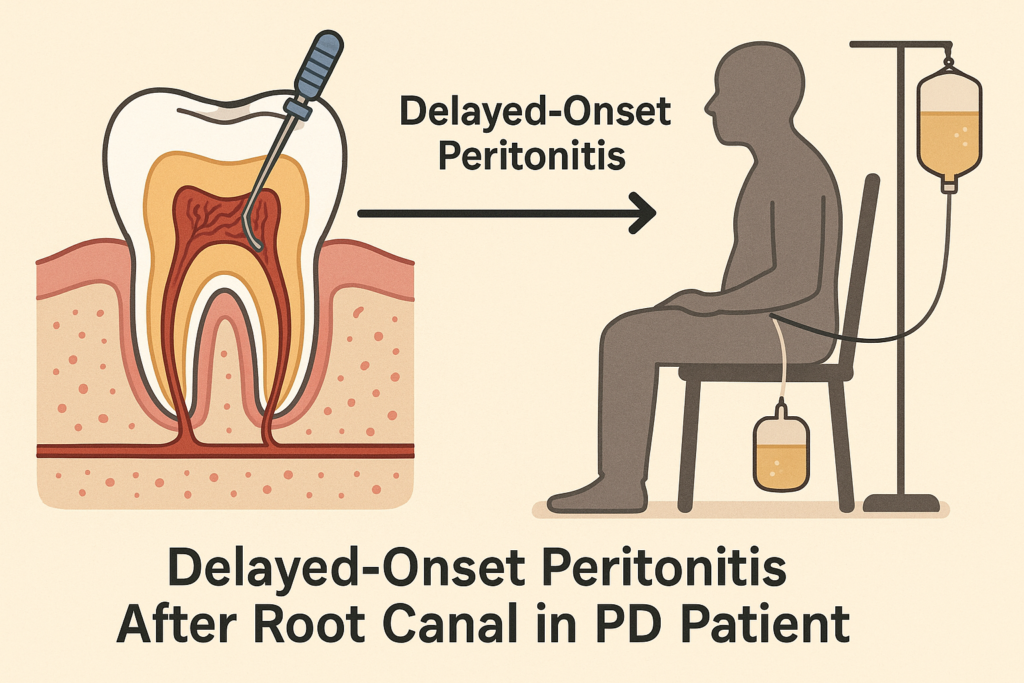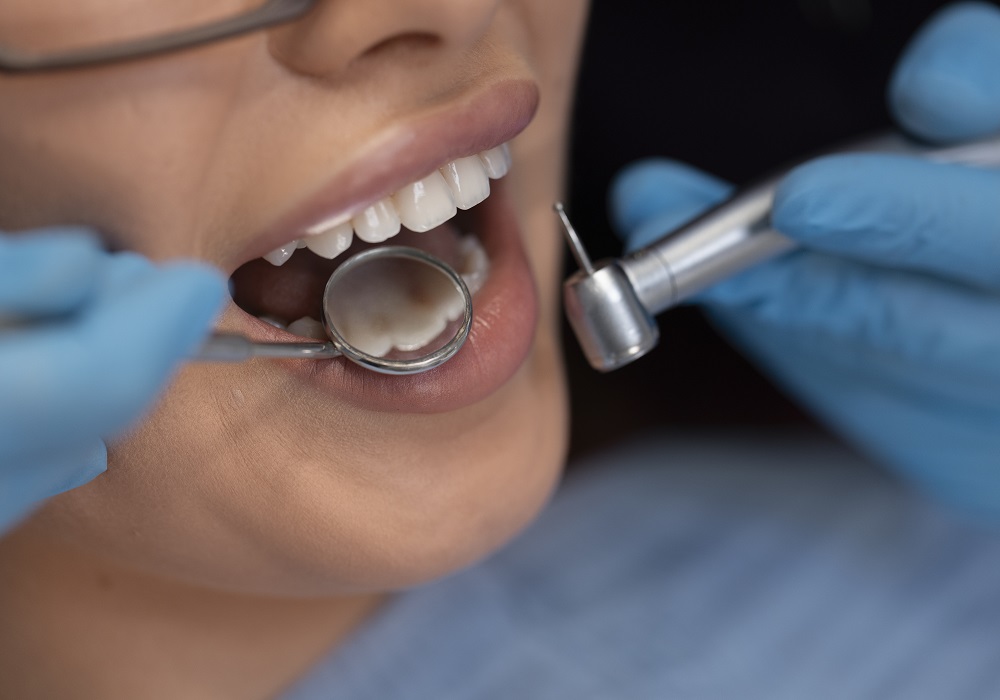Introduction
Could a routine dental procedure really lead to serious infection in a peritoneal dialysis patient? That’s exactly what happened in the “Delayed‑Onset Peritonitis After Root Canal in PD Patient: Doctors Report First Case.” In this first‑ever case, doctors found that a root canal triggered delayed‑onset peritonitis in a patient on peritoneal dialysis (PD). This article explores why it matters, what symptoms to watch for, and why early detection is key—especially if you or someone you know is on PD.
What is Delayed‑Onset Peritonitis After Root Canal in PD Patient?
Understanding Peritonitis in PD Patients
Peritonitis is an infection of the abdominal lining common in peritoneal dialysis (PD) patients. Typically, it occurs within days. In this rare case, it happened after a dental root canal, and on a delayed timeline, which surprised the doctors.
Why Is This First Case Significant?
- It’s the first documented case linking a root canal with delayed‑onset peritonitis in a PD patient.
- It highlights a previously unconsidered risk factor for PD complications.
How Did Doctors Diagnose It?
- Timeline: Symptoms began several days post‑procedure, not immediately.
- Tests performed: Peritoneal fluid analysis, culture reports, and dental history review.
- Findings: Bacteria likely entered the bloodstream during the root canal, then seeded the peritoneal cavity.
What Are the Symptoms to Watch For?
Delayed‑Onset Peritonitis After Root Canal in PD Patient: Doctors Report First Case described symptoms that included:
- Abdominal pain and tenderness
- Fever or chills
- Cloudy PD drainage fluid
- Fatigue or nausea
These are typical peritonitis signs, but the delayed onset was the unusual part.
What Risk Factors Raised Concern?
Root Canal and Oral Bacteremia
Root canal procedures can introduce oral bacteria into the bloodstream. In PD patients, even small amounts can travel to the peritoneal space.
Immune Vulnerability in PD Patients
Patients on peritoneal dialysis often have lowered systemic immunity, making them more prone to infections, even from moderate bacterial exposure.
How Should Doctors and Patients Respond?
For Healthcare Providers
- Consider asking about dental work history before unexplained peritonitis.
- Include delayed-onset infections in your differential diagnosis.
For PD Patients
- Inform your medical team before any dental procedure.
- Watch for peritonitis symptoms for at least one week after dental work.
- Seek help promptly if symptoms appear.
Prevention Recommendations
- Antibiotic prophylaxis: Some experts suggest prophylactic antibiotics before dental work, though guidelines vary.
- Strict oral hygiene: Regular check‑ups and cleanings to reduce oral bacterial load.
- Post‑procedure monitoring: Keep an eye on PD output and general health for days after dental treatments.
How Unusual Is Delayed‑Onset Timing?
In most cases, peritonitis in PD patients develops within 48–72 hours of bacterial entry. The delay of several days, as in the reported case, is extremely rare, making this case notable and worthy of wider attention
Delayed‑Onset Peritonitis After Root Canal in PD Patient: Doctors Report First Case – Frequently Asked Questions
- What is delayed‑onset peritonitis after root canal in a PD patient?
The unusual peritoneal infection developing days after a root canal in someone on peritoneal dialysis—it’s the first case ever reported of this type. - Why did peritonitis occur after a root canal?
Dental bacteria likely entered the bloodstream during the procedure, then seeded the peritoneal cavity—a rare path in PD patients. - How soon after dental work should PD patients watch for symptoms?
Watch for abdominal pain, cloudy drainage, fever, or nausea for at least one week after the procedure. - Should PD patients take antibiotics before a root canal?
Prophylactic antibiotics may help reduce risk, but advice should come from your nephrologist or infectious disease specialist. - What makes this case unique?
It’s the first documented instance of peritonitis after a root canal with delayed onset in a PD patient. - Can other dental procedures cause this?
Any dental work with potential bacteremia could pose a risk, especially in vulnerable PD patients. - What should healthcare providers do differently?
They should consider delayed‑onset infection in PD patients who’ve had recent dental work—even after several days.


 Dental Checkup Services
Dental Checkup Services
 Our range of products
Our range of products
 Oral Care Blogs
Oral Care Blogs
Recent Comments